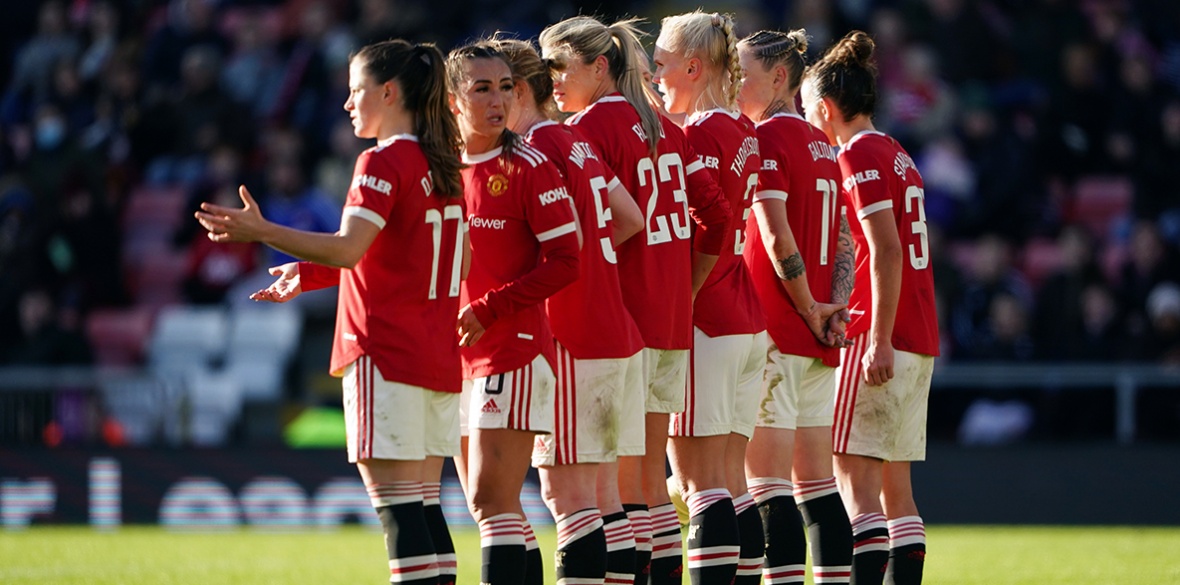This is the last article you can read this month
You can read more article this month
You can read more articles this month
Sorry your limit is up for this month
Reset on:
Please help support the Morning Star by subscribing here
FOOTBALL finally has the opportunity to make change for the better after a review led by the people who matter the most — the fans.
This week, the government’s long-awaited fan-led review masterminded by Tracey Crouch was released. Among the raft of suggestions aimed at the men’s game, such as the introduction of an independent regulator, it was important that the review looked into the women’s game and looked at what needs to be done in the future.
Its overriding recommendation was a simple one: the women’s game has a number of issues dictating whether it will reach its potential, and these deserve a dedicated review of their own if they are to be properly addressed.
For all the government’s problems, it seems as if it has finally done something correct when it comes to football. As is regularly said, the women’s game in this country is at a pivotal point and a review from on high which could possibly lead to legislative change is a much-welcomed decision.
The WSL is rising to the top of the game, rivalling the NWSL for the spot as the top league. It is up to the FA (which has made its own new plan for the next three years) to make the change to the game itself, but a dedicated review which is led by fans would help to dictate the way in which they look at the game’s future.
While the report has its main recommendation, it looks more deeply into the women’s game and highlights a number of problems which it currently faces. A key one of these is finance, and its implication that the Premier League should have far more involvement in the professional women’s game in the country is the right one.
It speaks of a “percentage of revenue for distribution in the women’s pyramid” and crucially, it makes sure to mention that this should not just be limited to teams who have a men’s equivalent in the top flight. Birmingham City, Bristol City and others have languished behind, while the newer sides backed by a wealthy men’s team have leapfrogged them.
A clear wealth divide is opening up not just in the WSL, but in the rest of the pyramid’s leagues too. It is difficult for a team without a PL equivalent to rise from the National League, and it seems as if it will only be a matter of time before independent teams such as Durham and Lewes can no longer compete with the sums of money being traded by their counterparts.
Wealth distribution like this will not only aid competitiveness, but will help another thing mentioned in the report: the players’ working conditions. The top flight is supposed to be professional, but this often seems to be in name only. Take, for example, the problems at Birmingham where players complained about not having the proper medical treatment and training facilities to be able to do their jobs properly.
More and more teams are moving to the men’s training grounds, but proper facilities should be a must and the next report should look deeply into this. Without the right working conditions, players do not get what they deserve and need to be able to perform as competitive athletes.
Another issue is prize money. The report talks about a women’s team receiving a mere £150 for winning an FA Cup match, whereas an amateur men’s side in the FA Vase would get £650 for doing so. The FA’s words about growing women’s football must be backed up with proper remuneration which allows teams to invest and fairly pay their players.
The prize pot for the qualifying rounds of the men’s FA Cup — before professional sides have even entered — is £2 million, a figure six times what women’s teams receive. With broadcast deals rising in value and more and more fans turning out to matches, this must be addressed.
For the grassroots, it is important that girls have the opportunity to play football, and hopefully the next report will look at this. The FA and Barclays are trying to get more girls football into schools, but the government themselves should make a stand and mandate that both sexes get equal opportunities to play the sport.
Should the subsequent review which it recommends come into fruition, then it could be a monumental moment for the game. Let’s hope that it does occur and that the government takes its recommendations seriously – unlike its botched attempt at reforming the Broadcasting Act, where it has still not ringfenced the need for the likes of the Women’s FA Cup final to be on free-to-air TV.










